Ukraine frontline: Beatings, torture and modern slavery beyond battlefield war crimes
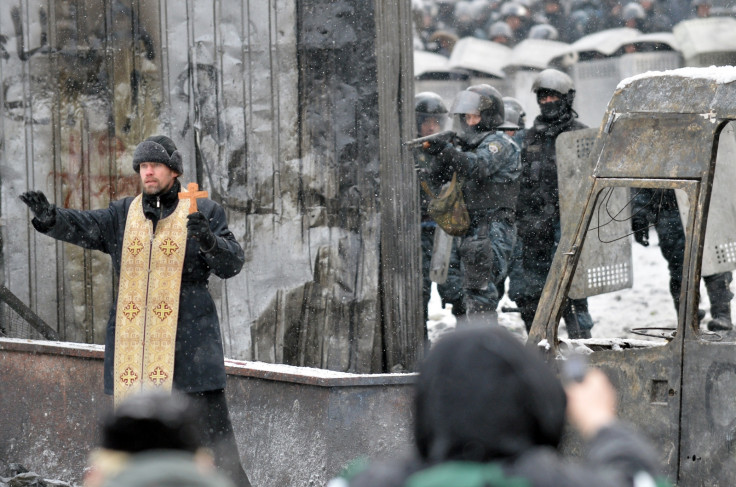
A damning report from Amnesty International released on 20 May 2015 has condemned the Ukrainian combatants for a litany of war crimes, including torture, electric shock treatment, and mock executions.
But as anyone who lives in Ukraine will tell you, the abuse goes far beyond the battlefield. No-one doubts that prisoners on both sides of the conflict have been subject to appalling treatment, yet in reality this is just one facet of a much wider problems.
The tumult of the past 18 months has caused people to take leave of their senses and abandon the veneer of civilisation. People from all walks of life have been persecuted, combatant or not.
This article will, we hope, provide a snapshot of what has been going on, and demonstrate that all corners of society have been caught up in the carnage of conflict.
Donbas people who still live under fire
Most of the population of Donbass left their homes a long time ago and moved to other cities of Ukraine and Russia in search of a better, more peaceful life. But, nevertheless, the temporarily occupied territories of Eastern Ukraine are still home to thousands of people.
These people are forced to live in constant fear of being killed or maimed; many of them are living in half-destroyed houses with the shells inside. These people are often hiding, or even living in the cellars, trying to protect themselves and their families.
The locals have a very weak supply of food, having been cut off from the outside world. Practically nothing arrives from Ukraine, since most of the products that are delivered to the occupied territories are whipped away by the rebels for their own needs, while the ordinary population gets very little.
The factories and plants are closed, the mines also do not work because of the high risks of traumata, and also because of the confiscation by the rebels of the materials produced. As a result, people also don't have any places to work.
In such circumstances, there are thousands of people who couldn't earlier even imagine that the streets of their own cities would ever be filled by tanks and armed forces. At the same time, the militants often specifically place their firing positions within or near the residential buildings, in hope that Ukrainian military will not shoot at the area.
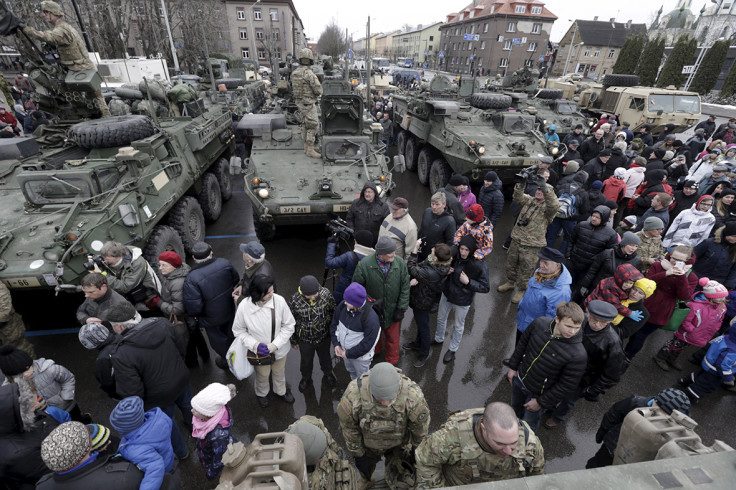
Refugees from Donbass and Crimea
The first refugees appeared when Russia annexed the Crimea from Ukraine. Even then, the local population understood that in such geopolitical conditions it would be too difficult to achieve their goal of a normal life. So, people needed to urgently move to safer regions of the country.
At the same time, many Ukrainians offered their own homes for temporary or permanent residence of refugees. One 62-year-old we spoke to, Bronislawa, said: "I live in the city, but I have a vacation house where I go once or twice a year. And these people have nothing. So why shouldn't I help good people? Of course, I will. So, I proposed they live in my house as long as they wish."
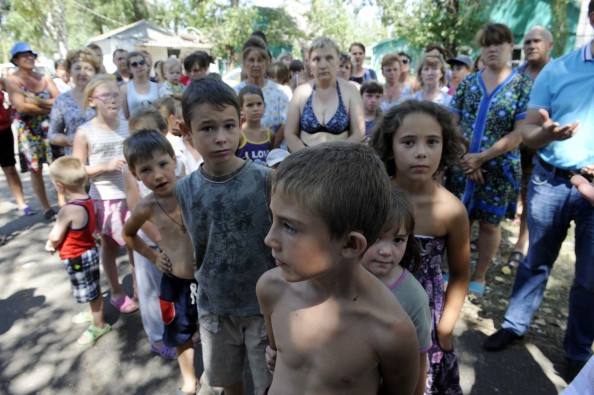
However, over time the number of settlers increased. Refugees appeared not only from Crimea, but also from the Donbas area. Now in Ukraine there are about one million displaced people, and not all of them have found a permanent home. Some got lucky and settled in houses like the one Bronislawa offers, but the rest were less fortunate.
People are forced to look for a new job in a completely new city, to place their children in schools and kindergartens (which are already overcrowded), and at the same time find places to live and eat.
Initially, the refugees received some money from the local authorities, regardless of which region they moved to, but the money is usually not enough to be able to live normally. People simply survive as best they can, hoping for the state, or the volunteers, or their relatives to help.
Crimean Tatars
Particular pressure has been placed by local "authorities" upon the Crimean Tatars, who were known for their pro-Ukrainian stance from the very beginning of the conflict, and accepted the annexation. In fact about 10,000 of the approximately 300,000 Crimean Tatars moved to the mainland.
The human rights activists state that over time, the pressure on the Crimean Tatars is unabating; moreover, it is systemic in character. It's important to mention that not only activists face pressure, but also ordinary people who take part in political life.
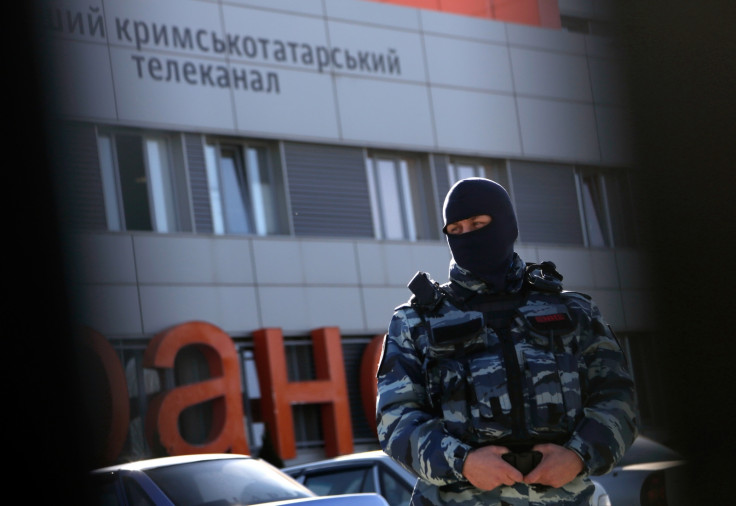
In addition, the Russian government is actively fighting against the leaders of the Mejlis - a representative body of the Tatar community in Ukraine. Mustafa Dzhemilev and Refat Chubarov, chairmen of the Mejlis, were both denied entry to Russian territory (which now, of course, includes Crimea).
When Dzhemilev tried to drive home to Crimea, he was not allowed, despite the rally of several thousand Crimean Tatars, who greeted him with slogans such as "Nation! Motherland! Crimea!" Conversely, a few dozen members were arrested by the new local (Russian) power.
Against the Crimean Tatars there is an active programme of persecution, aimed at the destruction of the population, or at least its "muting". In fact, during 2014 in the Crimea, 18 Crimean Tatars disappeared. Some of them made contact later, but others were found dead. The fate of five people is still unknown.
Forced to fight
Since the beginning of the antiterrorist operation in eastern Ukraine, the authorities began to actively resort to voluntary groups who wanted to fight against the rebels. However, the operation has been delayed, lots of people have been killed, and accordingly, new human resources are required to maintain the quantitative and qualitative composition of the defence.
Thus, the government announced a partial mobilisation. As a result, 100,000 people aged 25- to 60-years-old must be mobilised during 2015. The problem is that almost everyone can be swept up in mobilisation.
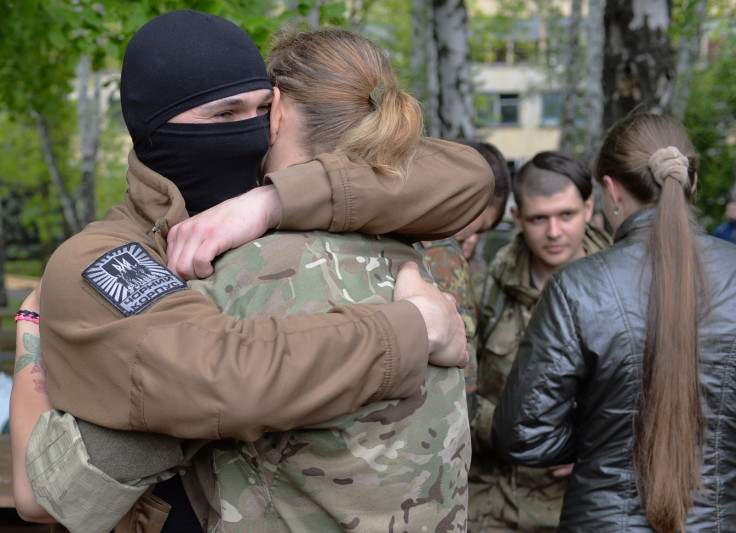
Because of this, most of the male population of Ukraine, which still does not take part in hostilities (part of neither the army nor the volunteers), are in constant fear of being mobilised.
Ukrainians know that most of the army demand is provided by volunteers, and in the case of loss of limbs or even death, the state actually turns a blind eye to the problems of yesterday's soldiers and their families.
As a result, many men try to "shirk" from the mobilization call, using both legal and illegal methods.
However, what should the father of two small children do, when he is the only breadwinner in the family? Or 37-year-old professor of the best university of the country, if they decided to mobilise him? To go to fight in the east, where they'll probably lose an arm or a leg, or go to jail for failure to answer the call to mobilisation? The question remains open for lots of Ukrainians, yet the answer for the authorities is, sadly, a clear one.
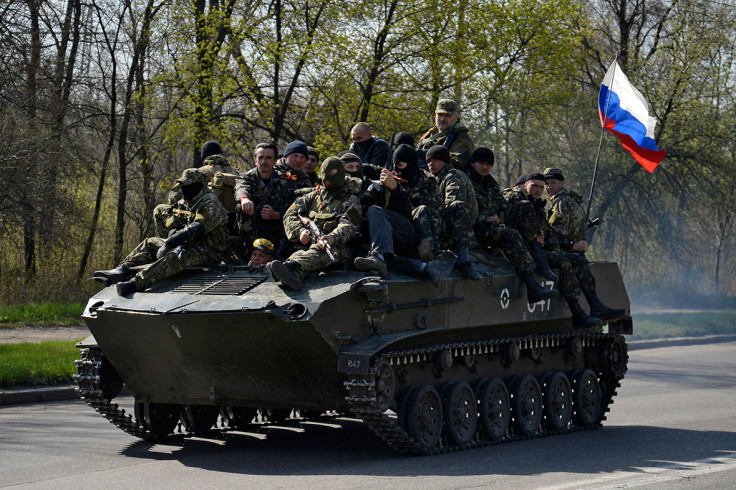
Shadow economy
As a result of the policy pursued by the state in 2014, the prevalence of Ukraine's shadow economy has increased by 7% to a value of 42% of GDP. It reflects not only the state tax shortfall, but also a violation of several human rights.
The shadow economy is allowing thousands of employers to hire employees illegally, with no official documentation or human resources procedures. For the ordinary citizen it can have its advantages, such as higher levels of salary (without taxes) or a free schedule. Yet there can also be significant shortcomings for those on "black" wages.
Employees who are ill or have to take maternity leave are routinely denied the pay they deserve. Morever, some employees are denied their salaries for months, even when they have clocked-in everyday. The employee has no legal recourse, as they chose the work by themselves.
And of course, there's Ukraine's very own zero-hours problem. Staff can be asked to work any hours the manager demands, lumped with aeons of overtime for no additional pay. People hate doing it, but they know what Ukraine is like. Almost half the population are now toiling in this squalid fashion, jeopardising their health and safety for the chance to earn a living.
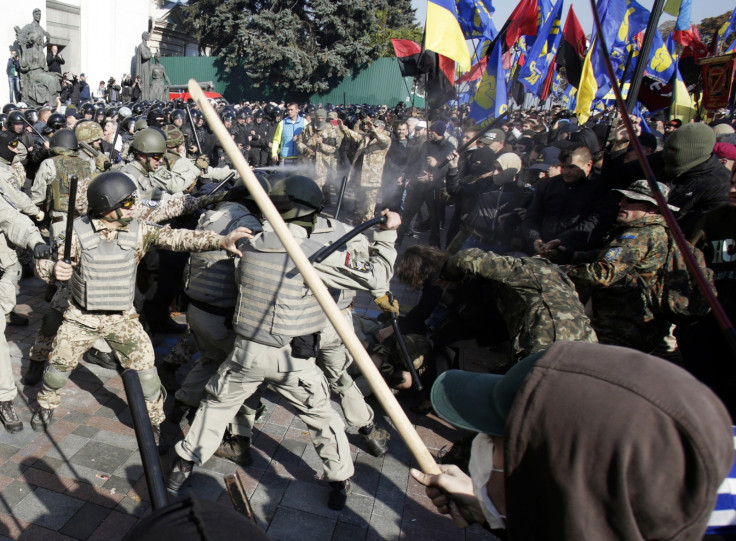
The impunity of law enforcement
The behaviour of police has long tormented the ordinary people; yet those who are supposed to uphold the law continue to behave with impunity.
The scale of the problem was clearly seen during the Euromaidan protest in November 2013, at the very start of the crisis. The protests against Yanukovych resulted in ritual beatings, with police cornering the young protesters and battering them with truncheons. The protesters were trying to run away, but that only increased the anger of the police. People began to resist, to rebel, but only received further blows with batons, water cannons, and even sniper shots to the head.
The new government, which came to power a few months later, promised to punish the guilty ones, and immediately dismissed the chief policeman of the country from his post, and opened criminal cases against several police officers. However, already a year has passed, and none of the policemen have yet been punished. In fact, only two ordinary police officers, who were recorded by camera, were punished - but Ukrainians tend to think that these guys are simply made the scapegoats.
That's what the student Ivan Nikolenko, who was at the Independence Square on the first night of the beatings, thinks about the police: "We need to stop the impunity of the police immediately. If we do not punish those who committed atrocities in the Maidan, these atrocities will continue to exist throughout the territory of Ukraine, as they are now.
"We [as ordinary Ukrainians] all know many examples when the police beat prisoners to death in their cells. You know, any of us could have been there. After I almost got a fractured skull in the city centre, such actions are not surprising for me. But it should not be like this. I support the peaceful resolution of all conflicts, so I think that the perpetrators should be severely punished by an imprisonment "
But the cases are still "on investigation" as the months tick by. Like all of Ukraine's myriad of rights abuses, police violence is set to rumble on and inflict further torment on the long-suffering population.
© Copyright IBTimes 2025. All rights reserved.





















